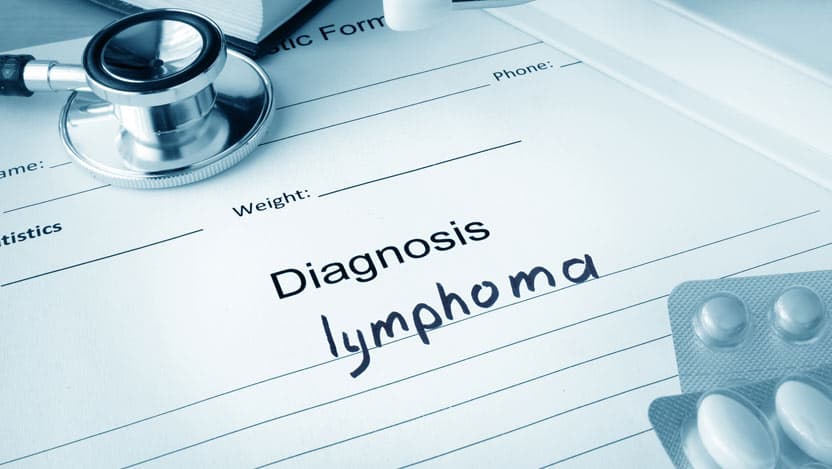Sonali Smith, MD: Undaunted by the challenges of lymphoma
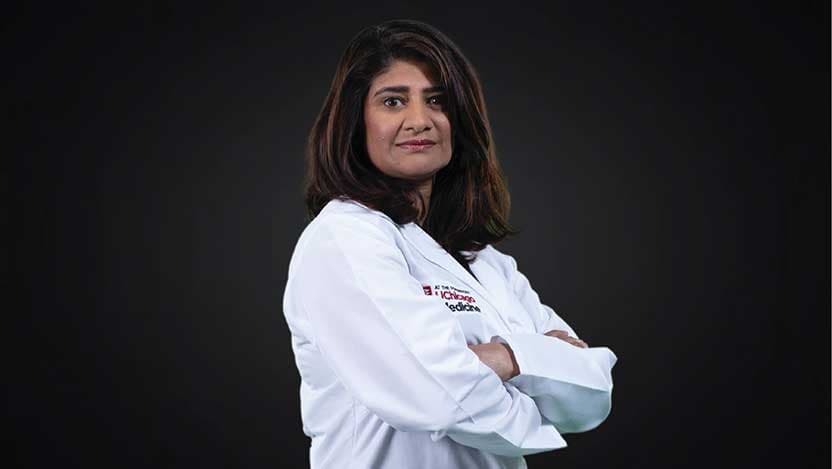
In May 2017, Sonali Smith, MD, called lymphoma patient Linda Winkler with startling news. Winkler’s cancer, which had come back after multiple treatments over many years, was in complete remission.
“Dr. Smith told me I was a walking miracle,” Winkler said.
Just one month earlier, Winkler had arrived at Smith’s clinic in a wheelchair, too weak to walk. The Colorado woman came to the University of Chicago Medicine to participate in a clinical trial for a new immunotherapy after being told she had only a few months to live.
“I’m giving good news to many more patients now than I did when I started my career,” said Smith, who joined the cancer care team at UChicago Medicine in 2001.
In the 1990s, when Smith was in medical school, chemotherapy was the only option for lymphoma patients. If they didn’t respond to treatment, more aggressive chemotherapy was given. Most patients with relapsed lymphoma did not survive.
But over the past two decades, as she went from trainee to nationally recognized expert, Smith witnessed an evolution — and revolution — in the care of lymphoma that she calls “nothing short of dramatic.”
I’m giving good news to many more patients now than I did when I started my career.
In 1997, just a year prior to Smith starting her training at UChicago Medicine, the first targeted therapy for cancer — monoclonal antibodies — was approved by the U.S. Food and Drug Administration. Antibodies are proteins made by the immune system to fight infection. Monoclonal antibodies can be designed to attack a certain target on the surface of lymphocytes, the cells where lymphoma starts. In clinical trials leading up to FDA approval, the best results were seen in the most common types of non-Hodgkin lymphoma.
“Cure rates improved. Quality of life improved. And how long patients lived improved,” Smith said. “It was very exciting to be part of the first leap forward in treatment for this cancer.”
Smith decided to devote her career to lymphoma care and research.
Lymphoma is a complicated cancer to diagnose and treat. It has about 80 subtypes, which experts divide into three categories: slow-growing, aggressive and highly aggressive. The cancer cells can reach any organ in the body. Lymphoma affects young and old, male and female, and all races and ethnicities.
“No patient is alike,” said Smith, who works with a team of pathologists and oncologists to pinpoint the exact type of lymphoma for each patient and outline a personalized care plan.
“Our goal is always for cure with the first line of therapy in aggressive lymphomas,” Smith said. “But when the lymphoma is particularly resistant and does not respond to chemotherapy or a stem cell transplant, we now have more to offer than we ever had before."
Doctor, Teacher, Mentor
Smith loves the diversity of lymphoma patients and the idea of having a lifelong relationship with them. Soft-spoken with a ready smile, she is known for her warmth and her reassuring manner with patients.
Sarah Long, RN, MSN, a nurse navigator for the adult lymphoma program at UChicago Medicine, observes Smith’s compassion and kindness with patients every day.
“She explains everything so well, and she captures what they are going through,” Long said. “After laying things out thoughtfully, she gives them the plan going forward.”
Just after getting her diagnosis of non-Hodgkin lymphoma, Marlene Markovich of Munster, Indiana, waited in an exam room at UChicago Medicine feeling anxious and scared. “But then I met Dr. Smith, and she gave me so much hope,” Markovich said. “I knew I’d be taken care of.”
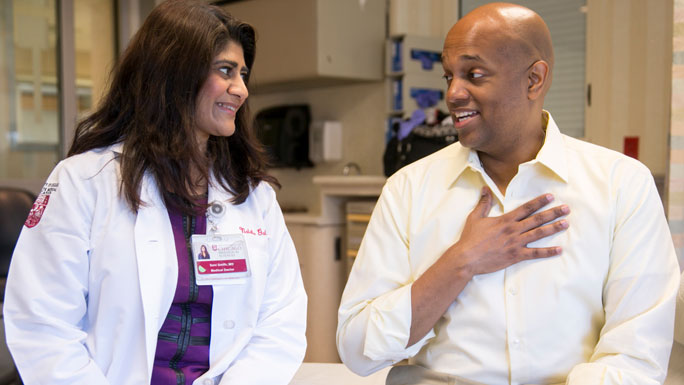
Another lymphoma patient, Clayton Harris, also praised Smith’s bedside manner. “She makes me feel like I am the only patient she is caring for,” he said.
Known for excellence in teaching, Smith spends much of her time educating nurses, trainees, and medical peers at UChicago Medicine and around the world.
“Dr. Smith is an excellent mentor who works to increase everyone’s knowledge about lymphoma and to improve their skill set,” said Katherine Gacek, RN, MSN, also a nurse navigator on the lymphoma team.
Smith has given more than 100 lectures for the Lymphoma Research Foundation, spoken to large groups at national educational events, and chairs education committees for several scientific groups — all of which speak to how generous she is with her time and expertise.
“I believe communication and education are empowering both to patients and to the clinical teams who care for them,” Smith said.
Lasting Impact
As a clinical researcher, Smith often serves as principal investigator on multi-center trials — developing and testing new therapies for lymphoma, with a focus on relapsed and hard-to-treat disease.
“We’ve hit the limit of what we can do with chemotherapy,” she said. “Our attention is now on finding chemo-free approaches.”
Just a few years ago, Smith was again involved in the advent of an innovative treatment for lymphoma and other blood cancers.
Immunotherapy, most notably CAR T-cell therapy, harnesses the power of the immune system to fight cancer. Some of the first clinical trials of CAR T-cell therapy, which supercharges a patient’s own T cells to seek out and destroy cancer cells, focused on patients with relapsed non-Hodgkin lymphoma. Up to 40% of these patients, all who had relapsed disease, experienced complete remission.
One of Smith’s patients, Scott McIntyre of South Bend, Indiana, was the first lymphoma patient to participate in the CAR T-cell clinical trial in Illinois.
A few weeks after undergoing the therapy, Smith called McIntyre: The cancer was gone. Like Winkler, he was another one of her walking miracles.
“Immunotherapy is revolutionizing how we treat certain blood cancers,” Smith said. “It has changed our algorithm and given us one more giant leap forward in lymphoma care.”
The Whys and Hows of Lymphoma
Smith first became fascinated with the immune system when she studied immunology in college and medical school. Why and how do immune cells, which are supposed to protect us from disease, turn into cancer cells? She believes the answer can be found in the tissue.
Thanks to support from Keith and Susan Hoogland and Highland Ventures, Ltd., Smith started the Sonali M. Smith, MD, is an expert in lymphoma care and research and is the Chief of the Section of Hematology/Oncology. Dr. Smith is actively researching new treatments for lymphoma, such as immunotherapies that harness the body's immune system to fight cancer. We are a leading community of physicians, researchers and game changers. We embrace challenges and turn them into opportunities to make a difference in your life.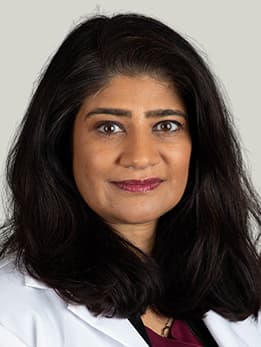
Sonali M. Smith, MD
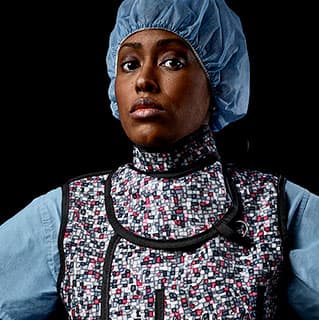
Sickness is relentless. So are we.

